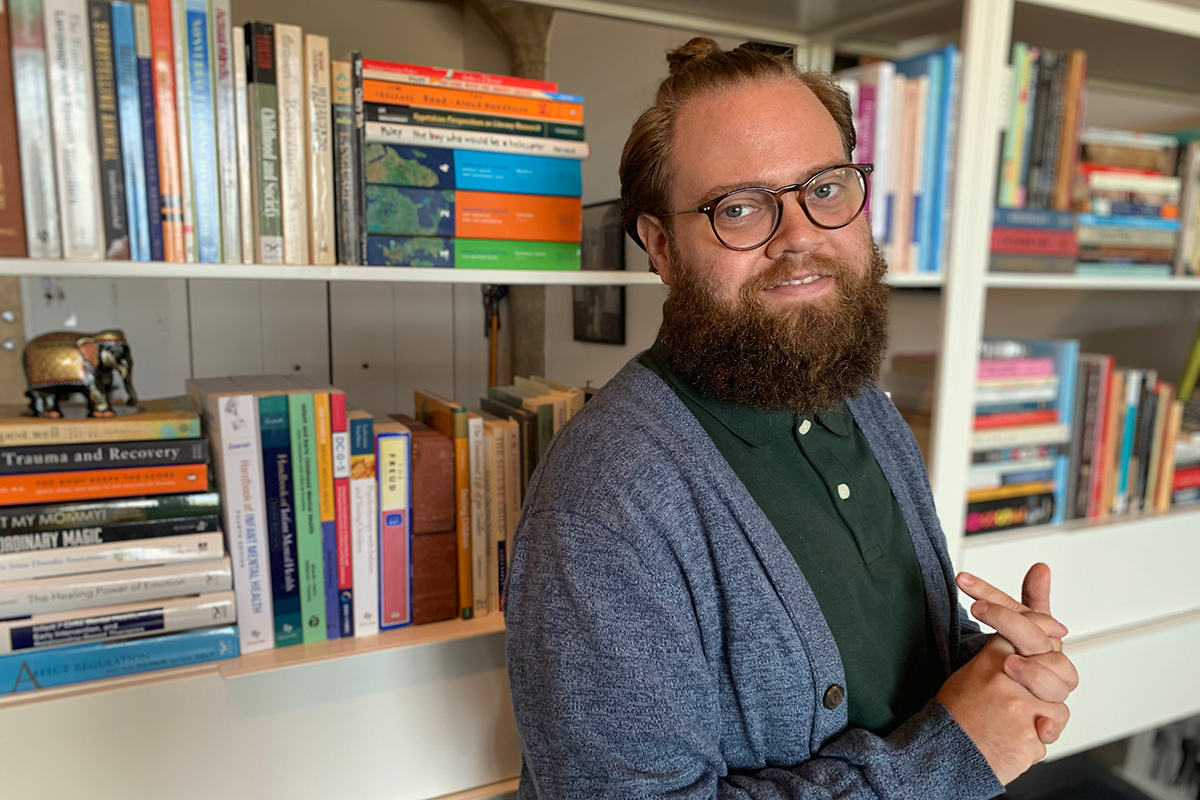Tyler Choate is doing what he loves as a speech language pathologist in Chicago.
“There are so many reasons why I am in love with what I do,” Tyler said. “One piece is related to the power of storytelling and the unique role speech language pathologists can play in mobilizing it to solve problems and support healing.
“Speech language pathologists understand how stories can create shared meaning and, on a broader level, carve out spaces for our shared humanity. I like to think about these as healing spaces that can support all people.”
Tyler is the director of speech and language services at LEEP Forward, Inc., a community-based developmental therapy center in Chicago. In his role, he works in clinical, administrative, and consulting capacities.
“As a clinician, I provide assessment and treatment for families navigating neurodevelopmental differences,” Tyler explained. “I also serve as the director of the speech and language program, supervising other speech-language pathologists and managing intakes and clinic-wide communication-focused programs.”
Tyler oversees all clinical education at the center, where he supervises and trains staff members and develops the therapeutic preschool curriculum. As a licensed speech language pathologist, he provides therapy to the center’s clients. As an Infant & Early Childhood Mental Health Consultant, he supports staff as they build relationships with children and families.
As a student in the Bachelor of Science in Speech Pathology and Audiology program, Tyler began working with clients in the Speech Language and Hearing Center.
“I still talk about my undergraduate clinical experience to this day,” Tyler said. “It was one of those smack-you-in-the-face lessons about putting theory into practice — a hard but valuable experience.”
After graduating with his undergraduate degree, Tyler applied to other master’s programs but found himself back on campus and enrolled in the Master of Science in Speech Language Pathology program at UL Lafayette.
“In true Cajun hospitality, I was welcomed for another two years after not getting into my ‘dream school,’” he said. “I learned quickly that the graduate program in speech-language pathology was a very special place. There is a culture in Burke-Hawthorne Hall that holds students closely and pushes them to be against-the-grain thinkers.”
After moving to Chicago, Tyler completed a two-year postgraduate training program in Infant and Early Childhood Mental Health at Erikson Institute. The program provided a deep look at parent-child relationships, how to support them, and the obstacles they face.
“I was able to tailor this experience to learn more about childhood adversity and traumatic stress, a great interest of mine. I want to overlay what I know and practice as a speech language pathologist on top of what I’ve learned about trauma and resilience,” Tyler explained.
"Specifically, I’m interested in the role speech pathologists could play in mitigating the effects of macro-level trauma caused by things like poverty, health and education inequity, and racism.”
Since graduating, Tyler has come to think of his work as an art and a science.
“Sima Gerber (a mentor of mine) calls our work as speech-language pathologists an ‘art and a science.’ It is rooted in rigor and science, but it expands to make space for the human experience,” Tyler said.
“Not many professional arenas can hold the fluid nature of art and the structure and reliability of science, but that’s what we strive to do every day in this work,” he said. “When Sima said this, I thought to myself, ‘Yes! This is what it was like in Burke Hall every day.’”
